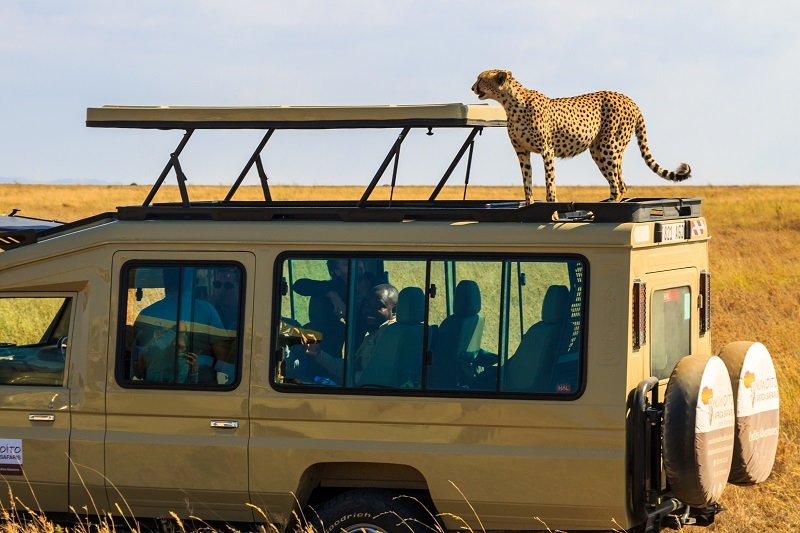
Africa is a continent of raw beauty, cultural richness, and cosmopolitan character. Be it the sun-baked dunes of Namibia or Zanzibar beaches, travelers throng to Africa for its visual magnificence, unrivaled wildlife, and multicultural cultures. But with such magnificence comes a greater responsibility. If we need to travel and make use of this great continent, then we must do so with dignity, sensitivity, and purpose intact. Ethical travel Africa is no trend; it's imperative. Read on for some travel impact tips.
Responsible travel in Africa involves making well-informed decisions that minimize negative effects on the environment and cultures and maximize people and conservation benefits. It involves being socially responsible, environmentally friendly, and culturally sensitive. We are travelers who consider the "where" and "when" of traveling but also how we travel.
In contrast to regular tourism that characteristically gives more than it receives, ethical tourism Africa seeks to create win-win interactions between the tourist and the local people. It asks us to reflect from our own perspective—from the tour operators that we employ to the gifts that we bring for the children.
Africa is not monolithic. There are over 3,000 ethnic groups and over 2,000 languages in Africa. Cultural diversity is amazing on the continent. Responsible travel in Africa is culturally conscious at its core.
Prior to any excursion to any area, familiarity with customs, beliefs, and social mores is a given. To illustrate, in most East African societies, it is rude to point with the finger. It is unseemly dressing that is respectable in North Africa. Saying hello to the locals in the local language, as crude as it is, can be very helpful in establishing rapport.
An appreciative traveler hears more than they talk, sees more than they dictate. Whether in a Berber home in Morocco or viewing a tribal performance in Uganda, doing these situations with respect and appreciation is the core of moral travel Africa.
Too many of the revenues of tourism in Africa are being diverted off the continent entirely, straight into the bank accounts of foreign-owned companies. Perhaps one of the best weapons available for responsible travel in Africa is putting local communities support at the very top of your agenda.
By investing in the economies of Africa, you are empowering others and, at the same time, preserving local knowledge and tradition. Every dollar you invest is either raising a community or pushing it behind. Your decision will be determinant, and your travels will have a positive, sustainable travel impact.
Africa's natural environment is the most valuable and vulnerable on Earth. From the Serengeti to the Congo Basin, these environments are suffering the worst effects of climate change and human development. That is where eco travel Africa comes in as a conservation force.
Every little bit helps. From walking South Africa's wine lands to kayaking the Botswana Okavango Delta, considerate practice can make a tangible difference in reducing your travel impact.
By adhering to these travel impact guidelines, you reduce harm and increase good, ensuring that the areas you enjoy traveling to are maintained.

Wildlife tourism is Africa's biggest pull but is also one of its most susceptible. All animals or safari experiences aren't the same. Responsible travel in Africa translates into only engaging in wildlife activities that consider animal well-being and conservation.
Look for operators who adhere to the guidelines of low-impact vehicles, safe distance, and learning experience. Ethical travel does not habituate or harass animals and positively contributes to anti-poaching and conservation efforts in the habitat.
Most tourists go for volunteering in Africa, believing that they will be able to make a difference where they visit. While the motive is good, not all volunteering is ethical. To remain in ethical travel Africa, choose volunteering programs that are community-led, transparent, and long-term focused.
Just avoid orphanage tourism altogether. These often hire vulnerable children for exploitation for profit purposes. Instead, look for opportunities that provide training, mentorship, or capacity development to the local groups. If you have professional skills—whether medical, pedagogic, or conservation—use them in a manner that enables communities to empower themselves, and not create dependency.
Being a responsible volunteer also involves realizing your own limitations and recognizing that at other times giving money or advocacy from a distance is more helpful than direct in-country aid.
The greatest African travel experiences are the outcome of genuine human connection. So tempting to remain within the tourist bubbles or socialize with fellow tourists, African responsible tourism sets the visitor out of their comfort zone and plunges them among the genuine people who make up these marvelous countries.
Go to a local concert, attend a cooking class, or help out for a day at a community project. They are not only part of the experience but also facilitate the gaps between the cultures. They break the stereotypes and foster understanding between both cultures.
By being culturally responsive in such an interaction, you are respectful and open. And by practicing people-led interactions, you are giving direct local communities support, underpinning the locality's sustainable development.
Essentially, responsible travel in Africa is humility. It's entering into every place not as consumer or stranger but as humble guest. It's understanding that your presence is making a difference—either positive or negative.
Responsible travel isn't something that has to occur at the cost of adventure or enjoyment. Instead, it's more likely to elevate the experience and make it something that you'll always remember. You can learn from the elders, dance with the kids, observe wildlife without destroying it, and leave feeling the satisfaction of knowing that you contributed rather than caused harm.
To learn eco travel Africa, start with purpose. Plan your visit with regard for issues of the destination—deforestation in Madagascar, limit on water in Namibia, degradation of culture in tourist-ghetto zones. Make each decision with a vision born out of compassion, respect, and understanding.
Another vital component of ethical travel Africa is hearing local voices and stories. Far too often, the stories about Africa are narrated by those who are not African. As an ethical tourist, look for African storytellers, writers, artists, and tour guides. Go see local art shows or buy books from Africans. Be a chronicler of respecting people you meet rather than scenery to your travel.
Travel, when well done, can be employed to dismantle stereotypes and uplift communities. In highlighting the strength, the creativity, and the potential of the continent, you become an advocate for a more equal, more respectful vision of Africa.
It's not simply about how we travel. Africa is not some place to go—it's home to millions of individuals, thousands of animals, and centuries of history. Our job as travelers is to be respectful of that.
By responsibly traveling in Africa, we enrich our own world and allow other people to develop sustainably too. Through focusing on eco travel Africa, remaining culturally respectful, participating in favor of genuine local communities, and following responsible global travel impact standards, we can equitize travel and have fun.
So next time you're drenched in the sunshine of Africa—on some dusty road in Ethiopia, along Mozambique's blue waters, or in Senegal's vibrant markets—halt. Take it all in. And remember: you're not merely a visitor. You're part of a greater narrative.
This content was created by AI